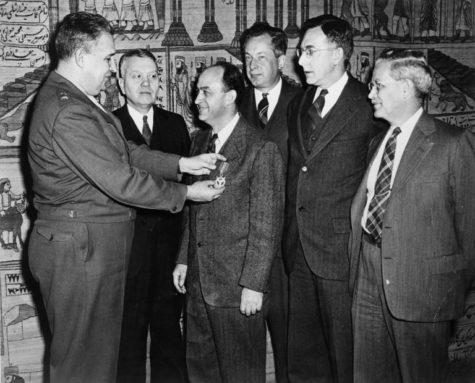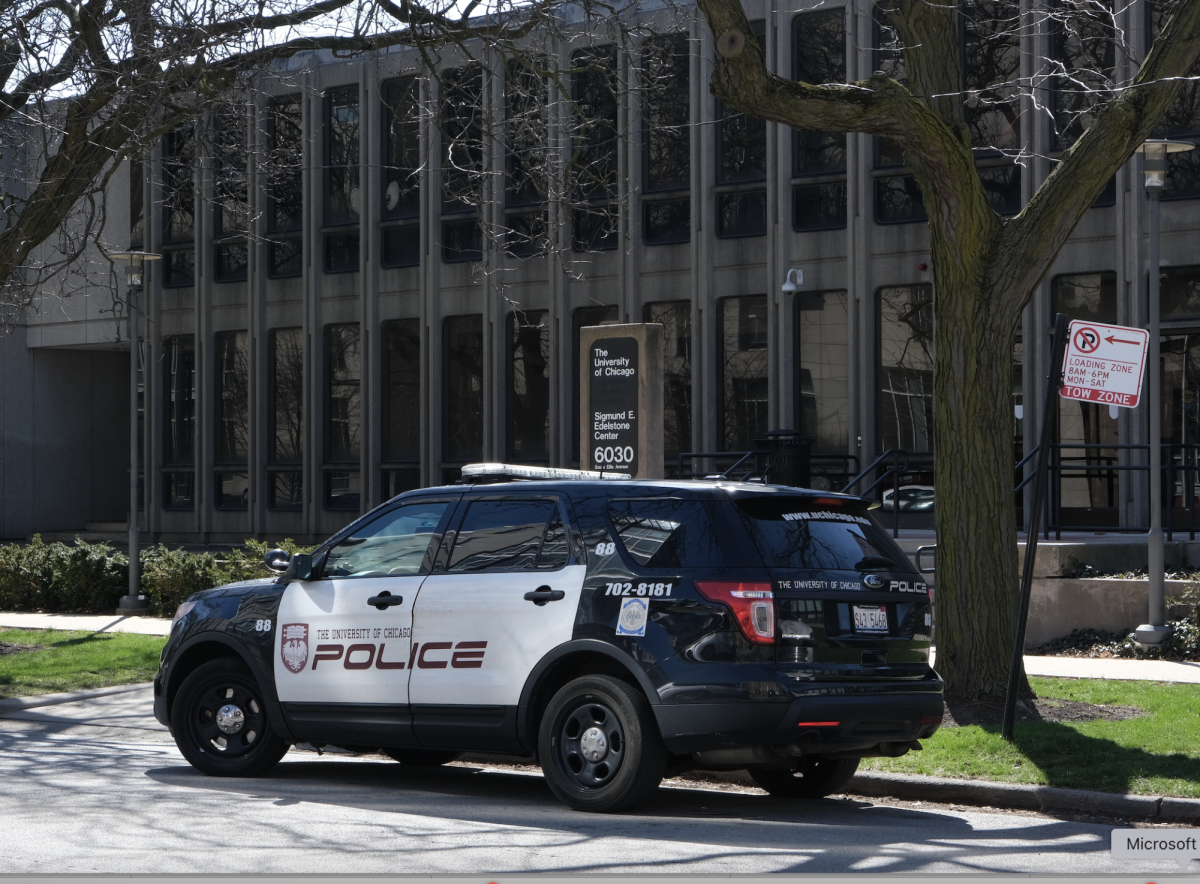Frank Rios (A.B. ’07) is a baller.
He was the lead analyst on a $19 billion Citibank deal earlier this year, a serious professional accomplishment that will shine on his résumé for years to come. When he’s not working, which is pretty rare, he’s out hitting the club scene or chilling in his apartment in lower Manhattan. In short, Rios has attained the econ major’s dream, living the finance high life in New York City.
What is this, 2005?
After all, his company, Citibank, recently announced that it will be laying off 53,000 employees-—a full 15 percent of its work force—adding to the 280,000 finance jobs that have been cut this year. On November 24, news broke that the government would have to step in to save the struggling bank. And the Dow Jones Industrial average continues its downward slide, hitting a five year low in late November. Shouldn’t Rios be biting his nails, updating his résumé, and hoarding cash under his mattress?
Not quite. There are many reasons why fresh, young bankers don’t seem to be in panic mode.
For starters, some Wall Street companies are actually doing better in the crisis. Archana Chandrasekhar (A.B. ’08), who started her job as a public finance analyst at Bank of America earlier this summer, says that since she works selling municipal bonds and other relatively safe investments, she’s seen record days in the past few months.
“For me, honestly, when the market is as down as it’s been, things are really good for us since bonds are safer than stocks,” she said. “It’s nice, but it’s sad that when the market goes down, we get busy.”
Gautam Gupta (A.B. ’05) has had a similar experience. Gupta made a strategic exit from banking over the summer, leaving ill-fated Merrill Lynch for a San Francisco–based private equity firm. It seems to have paid off—his firm has escaped the downturn nearly unscathed. Private equity firms, which use money from their investors to purchase and resell companies, can benefit from very low valuations in the depressed market.
“The downturn is almost a good thing for [the company],” Gupta said, explaining that his firm has not taken on much debt. “Prices are so low, we’ll probably make a lot of money in a few years.”
And these alumni have another thing going for them: their youth. Though the College’s Career Advising & Planning Services (CAPS) and Career Services at the Booth School of Business have each offered extensive services to alumni facing unemployment-—which have been well-utilized, they say—many recent graduates have faith that they’ll come through this crisis without much difficulty.
“Mostly senior people should be concerned, because they make the big bucks,” Rios said. “Junior people do a lot, and they’re not that expensive.”
Though Chadrasekhar is concerned that Bank of America’s recent acquisition of Merrill Lynch could jeopardize her position, she also said she’s not looking for anything new just yet.
“It would be a big waste to fire all of us. Now they can teach the new kids, so if God forbid, something like this happens again, we’ll know how to do it,” she said. “The people in the middle have had an easy 10 years—they haven’t had to calm clients down and explain this stuff to them. The younger people are doing a lot better job of adjusting and sending out a positive message to investors.”
After all, even in the best of times on Wall Street, nobody seems content to stay in one place for too long. And many knew they were entering a volatile field at a particularly uncertain moment. While Gupta characterized the current mood in Manhattan as “shaky,” he emphasized the flexibility of his peers.
“Especially a few years out of college, there are so many opportunities to do cool stuff,” he said. “Most people just aren’t that concerned.”
$ $ $
Is this just banker bravado, or is there something to support the laid-back attitude? Chandrasekhar is the first to admit that she doesn’t have all the answers.
“It’s all just guesses,” she said. “There’s all this elitist nonsense with regard to banking. Everyone thinks, if I’m a banker, I know everything.”
But most agree that there are some major shifts in store for the financial landscape. Heightened government regulation and the effects of the bailout package may affect the way business is done on Wall Street for years to come. There are no more independent investment banks, and it will be awhile before the remaining commercial banks will be able to take the same kinds of risks.
Nevertheless, experts in the field believe there is still money to be made on Wall Street, and they anticipate a continued need for investment bankers.
“As the world recovers, the remaining large banks—now all commercial banks—will continue to be successful, albeit perhaps not so large as before,” said Steven Kaplan, a professor of entrepreneurship and finance at Chicago Booth.
For now, many large banks are scaling back their hiring. Michael Paone, a former vice president at Bear Stearns and now an assistant director of employer relations at CAPS, says that while banks are “cautiously optimistic” about their future, many are waiting until 2009 when their budgets are in order to make hiring decisions.
In the meantime, full-time hiring is taking a hit. JPMorgan Chase & Company, for instance, will not be conducting on-campus recruiting at any schools, as it is managing the influx of new employees from Bear Stearns, which it purchased in April. Banks that are still recruiting on-campus, including Morgan Stanley and Credit Suisse, are filling fewer positions than in past years.
The situation is similar at the graduate-school level. Julia Zupko, senior associate director of Career Services at Chicago Booth, says that financial firms are interviewing 17 percent less this year than last year, and that job postings are down 11 percent.
But hiring won’t be totally frozen.
“I-banking recruiting is definitely down as their business is down. That said, they will do some hiring,” Kaplan said. “In the past, they have been caught shorthanded when the market has turned.”
There is reason to be optimistic. Banks such as Goldman Sachs, JPMorgan, Credit Suisse and UBS are still aggressively recruiting both undergraduate and graduate interns for next summer, from whom they may draw future full-time hires.
“It’s still too early to tell the data-driven impact on internship recruiting, but firms are telling us that the market is ‘stable’ for 2010 graduates,” Zupko said.
But some students applying for finance jobs are revising their immediate goals. Fourth-year Ted Garelick expected to start out as an analyst at a large investment bank, work for a few years, and figure out a more long-term plan along the way. He remembers his Psi U fraternity brothers who inspired him to go into finance, almost all of whom ended up at large banks after graduation. But things won’t be so simple this year.
Garelick, who interned at UBS over the summer, is expanding the scope of his job search.
“There’s so much out there, I’d be happy to get a job anywhere,” he said.
Now he’s looking into jobs at proprietary trading firms and financial sales firms, and sighting options that weren’t even on his radar screen a year ago.
“I was aware of their existence, but they were secondary goals,” he said. “Now, that’s not true. I didn’t think they’d be my first choice.”
Paone and Zupko agree that there are jobs available in finance-related fields but that students might have to be a bit more creative and flexible to find them. Paone suggests that students look at smaller boutique firms and ratings agencies as good ways to get started, instead of thinking exclusively about the large banks. Both pointed out that many large corporations have internal financial service demands and that there are finance positions open within these companies, not just banks. Interviews for internal finance positions like these are up 60-percent from last year among Chicago Booth students, Zupko said. There has also been a noticeable shift toward consulting jobs.
Other students are exploring different ways to beat the odds in a weak job market. Fourth-year Paymon Khorrami is currently applying for jobs in finance and consulting, and has also started looking into graduate school in economics or finance. He said many students are looking at one-year graduate programs as a way to wait out the year, gain qualifications, and then apply for jobs when the market is more favorable.
“If grad school is available for you, maybe it’s okay to be less picky,” he said.
But for facing a newly uncertain future, these students seem remarkably calm.
“People with open minds are still getting interviews,” Garelick pointed out. “They still want hard-working U of C students. Things are just changing.”
$ $ $
But with all the uncertainties, is banking still worth it? Compared to prior years, many graduates will start out in less glamorous positions, with less glamorous salaries. And the coveted investment bank spots still come complete with notoriously terrible hours—up to 90 or 100 hours a week. Plus, yearly bonuses are under fire.
“There [are] lots of bogus reasons for going into finance, and people are lying through their teeth,” Khorrami said. “It’s really about the money.”
Fourth-year Adam Domat echoed the cynicism.
“It’s the money, and also that it’s a stepping stone to another career,” he said.
Nevertheless, they’re each sufficiently interested in the field to continue applying, despite the challenges. Garelick admits that he considered abandoning ship and pursuing a career in his family’s dental practice. Ultimately, he decided to keep at it.
“Finance is still exciting,” he said. “We’ve learned that there are winners and losers. If you’re a winner, it’s great. You have to have a stronger stomach.”
The challenges do seem to be weeding out the weak-willed. Chandrasekhar said there’s a sense of urgency around her office.
“It’s an interesting time to feel out how this industry works,” she said. “If you go in when everything is swimming along, you’re only doing it for the money and to learn a little. But now you have to make the most out of every day.”
And for those looking for an out from the grueling hours and all-consuming lifestyle of banking, layoffs may mean an opportunity for a career change. Gupta tells a story about a friend recently fired from Citibank.
“She was super happy about it,” he said. “She wanted to quit anyway!”
And among those who are still in the game, there’s a sense of camaraderie. Khorrami and Domat said they think the application process has at least felt less competitive, even though there are fewer spots to go around. And those who have had a taste of real life in finance and don’t want to give it up say the crisis has in some way enhanced their first months in the industry.
Chandrasekhar said the uncertainty has pushed her to network and meet people that she might otherwise not have met.
“That there’s a little bit of fear in everyone makes people more open and personable,” she said.
Though its image might be somewhat tarnished for now, finance still appeals in ways unmatched by other industries. Most think that though the industry model is changing, the services banks and other financial firms offer will always be utilized.
“Talented people will continue to come into finance,” Gupta said. “The things that you learn in finance, and the opportunity to move quickly into management-type roles and the skills you get are genuine skills you won’t get anywhere else.”
And according to Paone, another thing will never change.
“The shifts are not damaging,” he said. “They’re not taking away the sex appeal of I-banking.”







